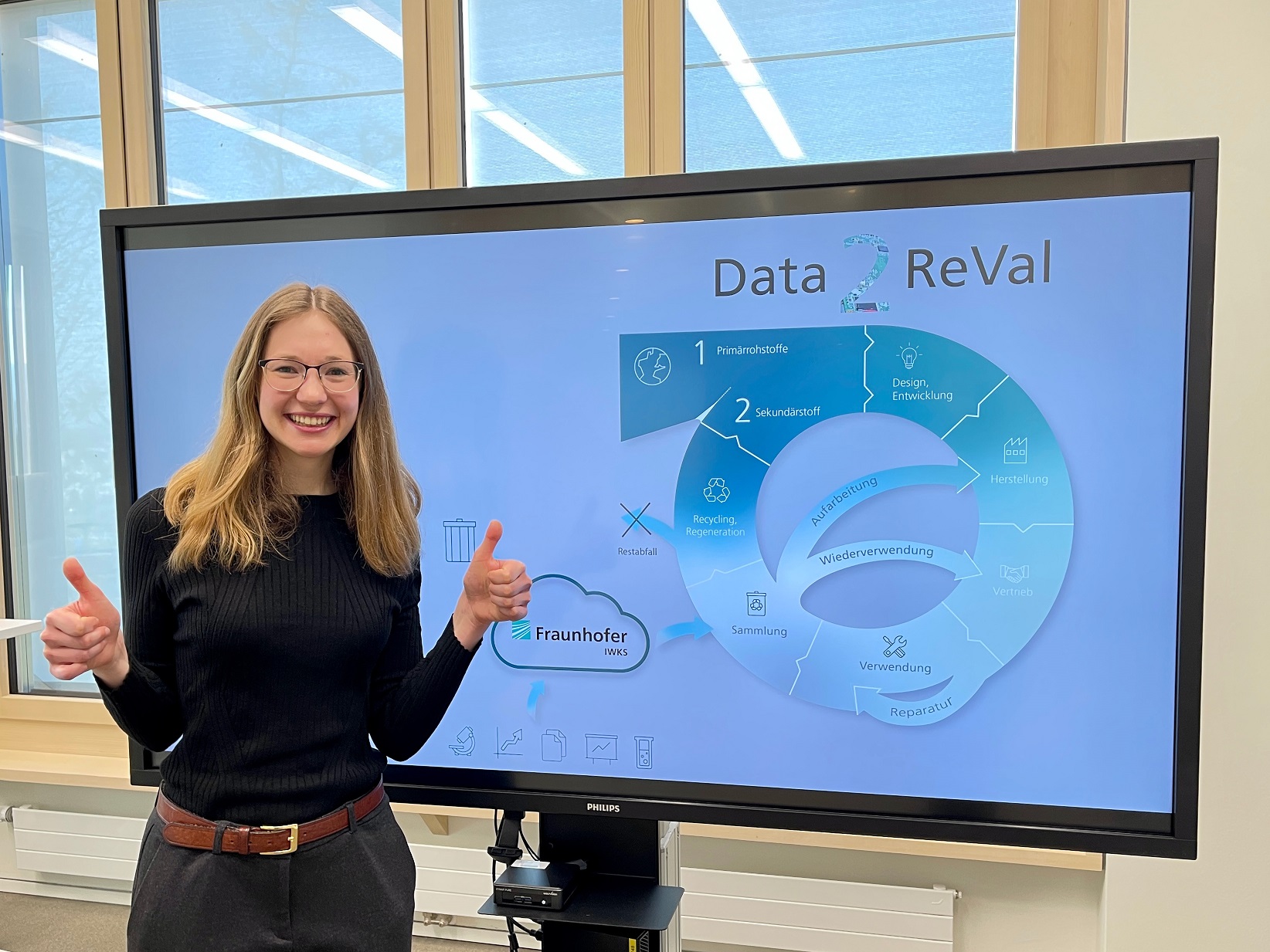Theresa Mack wins Fraunhofer ideas competition "Ramp Up Resilience"

On March 23, 2021, the "Ramp Up Resilience" ideas competition took place in a hybrid format as part of the Fraunhofer-Gesellschaft's Netzwerk Symposium. Theresa Mack, a scientist in the field of digitization of resources at the Fraunhofer Research Institution for Materials Recycling and Resource Strategies IWKS, prevailed against eight other finalists with her live pitch and won first place in the ideas competition, which is endowed with EUR 5,000.
With the competition, the Fraunhofer-Gesellschaft called on all Fraunhofer scientists to submit resilience concepts in the form of concrete applications. These could be technical solutions as well as organizational, regulatory, financial and structural management concepts. The ideas competition addressed a wide range of possible crisis topics, including epidemics and pandemics, natural disasters, chemical or traffic accidents, financial crises, terrorist attacks and cyberattacks, among others.
Data-driven recycling system to enhance resource protection
Theresa Mack presented the development of a two-part database for building an intelligent take-back system for valuable, complex waste products. The goal of such a data-driven recycling system for consumer products is to intercept volatile raw material availability and prices, especially during crises, and to maintain a stable supply of production materials. To make diversely assembled products accessible as secondary raw materials, Theresa Mack developed a system to capture them in an intelligent take-back system for complex waste products. Products are automatically assigned to material and product classes according to the materials they contain, their recyclability, and the prospects for reuse of the recyclate. Based on the evaluation criteria determined, a remuneration system could be developed in a second step, which would create an incentive for private individuals. On the other hand, buyers would be integrated directly into the system in order to respond specifically to their requirements.
To build up a sound data basis, the researcher has developed a two-part approach here: First, a multitude of structurally different data sources (market data, experimental data and evaluation indicators) are evaluated and transformed into a uniform structure. Second, a prototype of a collection container will be set up and used in model cities to validate the data collected in the first step with empirical data and to determine the economic benefit of recycling the equipment. The data collected will be made available to companies and other stakeholders as a database to fill information gaps that impede high-quality recycling. The database can be used to develop further service solutions such as eco-design strategies in product development, estimation of raw material potential and assistance in risk assessment. In addition, the collection system offers optimal starting points for testing technological enhancements such as material codes and the addition of B2B solutions.
Theresa Mack convinced the jury with her practical, economically feasible and visionary project.
The entire Fraunhofer IWKS congratulates her on this outstanding achievement!